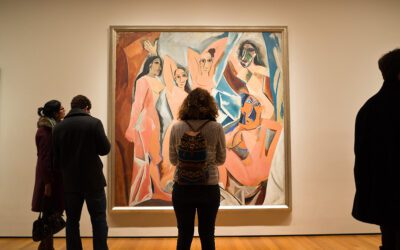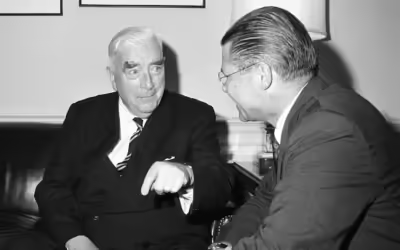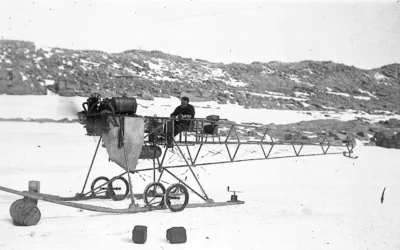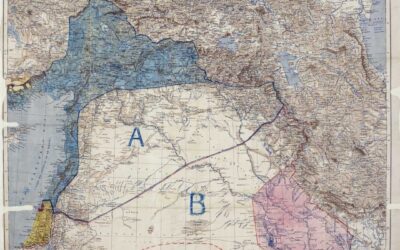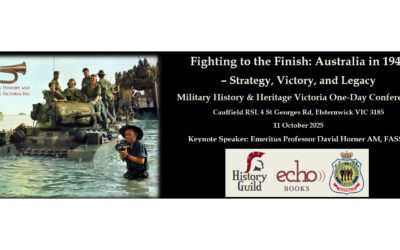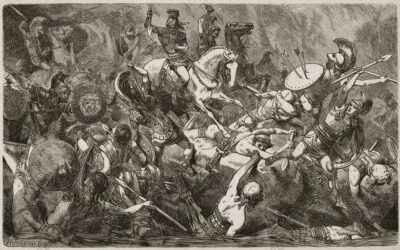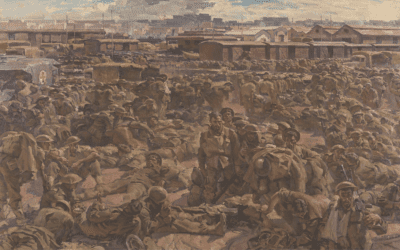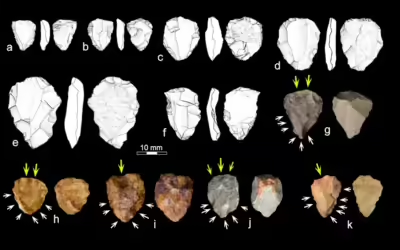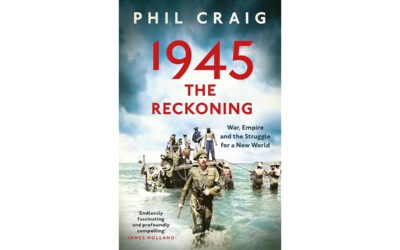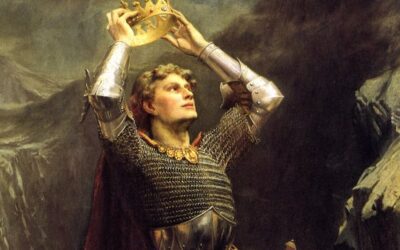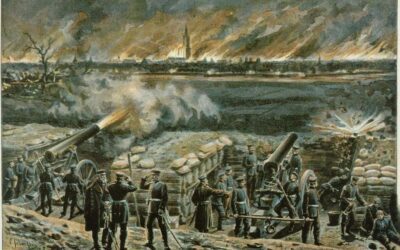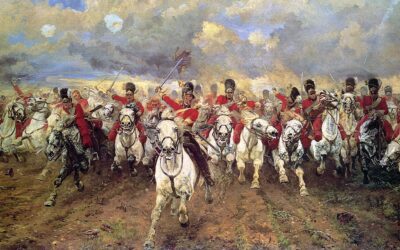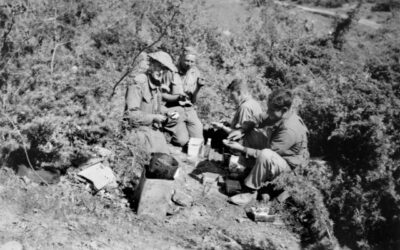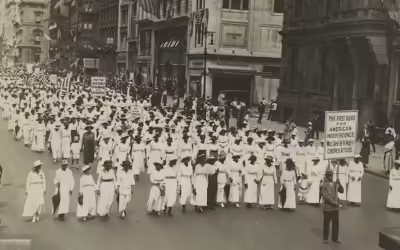History Guild publishes articles that provide interesting insights into history. We cover all aspects of history, from around the world and across time.
Five Conspiracies that shaped our world
Reading time: 7 minutes
The world is a complicated place, and there are a lot of things out of our control. No wonder, then, that conspiracy theories abound, tales where shadowy forces control what happens, when it happens, and to whom. However, not all of these theories are all that theoretical, and there are plenty of examples of conspiracies that went far beyond the drawing board.
Young people remain ill-equipped to participate in Australian democracy
Reading time: 5 minutes Despite many young Australians having a deep interest in political issues, most teenagers have a limited understanding about their nation’s democratic system. Results from the 2019 National Assessment Program – Civics and Citizenship (NAP-CC)...
Cubism and Colonialism: How African Art Shaped Picasso’s Vision
Reading time: 6 minutes
In the early decades of the 20th century, modernism forever changed artistic representation. Artists like Pablo Picasso and Georges Braque, whose experiments formed the foundations of Cubism, were just some of the many innovators responding to changes in technology and urbanization.
Picasso is possibly one of the most well-known artists today, and much is known about his life and inspirations. However, one influence behind his innovative style is less explored in popular culture—the impact of colonialism. The cubist movement arguably would not be what it became without the legacies of colonialism and imperial conquest.
Menzies’ call on Vietnam changed Australia’s course
Reading time: 4 minutes
In 1965, Australia was involved in two crises in Southeast Asia, one in Vietnam and the other in Indonesia. The connection between the two was vital to Menzies’ decision to increase our involvement in Vietnam. Having already committed a battalion to Malaysia to support resistance to the Konfrontasi policy of Indonesia’s Sukarno government, the logical next step for Menzies was to look to Vietnam. He did this with the support of his Cold War warrior and minister for external affairs, Paul Hasluck. They decided to send an Australian battalion to South Vietnam, partly to ensure continued American interest in the region.
Vickers’ First Aeroplane and the Mawson Expedition
Reading time: 31 minutes Believed to be the first Vickers-Pelterie REP-type tractor monoplane constructed, but not the Mawson aircraft. Flight, August 26, 1911 P.734 The Australasian Antarctic Expedition, 1911-1914, became the stuff of legend, one of the very...
What was the Sykes-Picot agreement, and why does it still affect the Middle East today?
Reading time: 7 minutes
While this may be true, Sykes-Picot is still emblematic of how consequential European colonial ambition was in the Middle East. And while the borders outlined in the agreement did not eventuate, Britain and France still managed to get most of the territory they wanted, with little consideration of local populations. The Sykes-Picot agreement is therefore one of many colonial projects that we are still feeling the ripples of today.
Fighting to the Finish: Australia in 1945 – Strategy, Victory and Legacy Conference, Melbourne. Book Now!
Military History & Heritage Victoria is excited to announce that tickets are now on sale for our next conference – Fighting to the Finish: Australia in 1945 – Strategy, Victory and Legacy – which will be held on 11th October 2025 in Melbourne. History Guild is...
Combat in the High Himalayas: the Sino-Indian War of 1962
Reading time: 13 minutes
There are corners of the map where the neat lines of national boundaries, so carefully laid and plotted over the modern era, begin to blur and bleed. Aksai Chin, the bleak “White Stone Desert” which sits just inside China’s western border, is one of these.
The Thucydides Trap: Vital lessons from ancient Greece for China and the US … or a load of old claptrap?
Reading time: 5 minutes
The so-called Thucydides Trap has become a staple of foreign policy commentary over the past decade or so, regularly invoked to frame the escalating rivalry between the United States and China.
Coined by political scientist Graham Allison — first in a 2012 Financial Times article and later developed in his 2017 book “Destined for War” — the phrase refers to a line from the ancient Greek historian Thucydides, who wrote in his “History of the Peloponnesian War,” “It was the rise of Athens and the fear that this instilled in Sparta that made war inevitable.”
The Greek and Cretan evacuations: Australians tell their stories
Reading time: 7 minutes The Battle of Greece is a story of grit, determination, and sheer bloody-mindedness as an outnumbered force of British and Anzac troops successfully delayed the tide of Germans invading the Mediterranean country. The goal was to delay the...
What stone tools found in southern tip of Africa tell us about the human story
Reading time: 6 minutes
Stone tools. Our ancestors made them, some people still make them, and many species of extinct humans made them too. For more than three million years, fractured pieces of hard rock provided past people with a means to extract their livelihood from the environment. Because stone is plentiful and cheap to acquire, stone tools were made in large numbers. And because it is so durable, it usually outlasts other traces of human activity. With the passing of time, everything from our thoughts and languages to clothes, food waste and even our own bones are inevitably erased. But stone tools have remained.
Call for Papers – Fighting to the Finish: Australia in 1945 – Strategy, Victory and Legacy Conference
Military History & Heritage Victoria is excited to announce the Call for Papers for our next conference – Fighting to the Finish: Australia in 1945 – Strategy, Victory and Legacy – which will be held on 11th October 2025 in Melbourne. History Guild is proud to...
How historically accurate is the film High Ground? The violence it depicts is uncomfortably close to the truth
Reading time: 8 minutes The Australian film High Ground, set mostly at a mission in Arnhem Land in the 1930s, blends stories (and languages) from Indigenous Nations across the region. It is a fictionalised story, inspired, says director Stephen Maxwell Johnson, by...
1945: The Reckoning: War, Empire and the Struggle for a New World by Phil Craig
This is a fascinating book, which explores the complexities of the final year of the war from the perspective of a varied range of people who lived through it. This is a book that crosses the globe from Britain to Germany and from India to Indonesia…it is ambitious,...
Here are the five ancient Britons who make up the myth of King Arthur
Reading time: 6 minutes
King Arthur is probably the best known of all British mythological figures. He is a character from deep time celebrated across the world in literature, art and film as a doomed hero, energetically fighting the forces of evil. Most historians believe that the prototype for Arthur was a warlord living in the ruins of post-Roman Britain, but few can today agree on precisely who that was.
Will tourism transform the way Australians remember the Vietnam War?
Reading time: 4 minutes
More than 300,000 Australians visit Vietnam annually. With the ongoing growth of tourism, it is likely that tourists’ experiences at Cu Chi and other war-related sites in Vietnam will increasingly influence how we commemorate this conflict, and encourage Australians to see it from both sides of the frontline.
The History of Gunpowder: From Elixir of Life to the Revolution of Warfare
Reading time: 6 minutes
One of the most famous materials in history, gunpowder is largely responsible for European dominance in the 20th Century, the fall of Constantinople’s impregnable walls, and much more.
Yet this devasting and destructive powder did not materialise into rifles and cannons in Europe in the 14th and 15th Centuries. Rather, it was discovered initially in China, several hundred years prior, by alchemists searching for, ironically, the elixir of life.
So how did gunpowder go from a powder for immortality in 9th Century China, to the fiery fuel of guns in Europe and the Middle East over 500 years later?
Why we are still living with the legacy of Waterloo – that ‘most bloody battle’
Reading time: 6 minutes
Our views of war are sanitised today. In an age of professional armies trained for increasingly technical tasks, few of us have witnessed combat, much less taken part in it. In that vein, commemorations of the 200th anniversary of Waterloo will focus on the battle’s strategic significance. There are, though, individual accounts that give us a glimpse into what sword fights and cavalry charges must have been like – and the deadly consequences of defeat.
Remembering the Battle of Crete – 2025 Commemorations
This year is the 84th Anniversary of the Battle of Crete. The fighting around Rethymno will be commemorated in a series of events, listed below. 22nd May 2025 18:00 Memorial Service & reception at Armeni in the memory of the Greek Police General Stylianos...
The Malta convoys: Australian sailors speak
Reading time: 7 minutes
The island of Malta, located in almost the exact centre of the Mediterranean, was an important depot and staging post for the Allied efforts in North Africa and, later, the invasion of Italy. As a result, the Axis forces bombed it relentlessly for years, something you can read about more in our article on the Siege of Malta through Australian eyes.
Trump Administration’s Attempts to Curtail Academic Freedom
History Guild supports the Australian Historical Association's Statement in Response to the Trump Administration’s Attempts to Curtail Academic Freedom. The Australian Historical Association stands in solidarity with our colleagues in the United States of America,...
What is suffragette white? The colour has a 110-year history as a protest tool
Reading time: 7 minutes
“Suffragette white” is proving to be a popular fashion choice for women who want to make a statement. Most recently, former Australia Post CEO Christine Holgate donned a white jacket in her appearance before a Senate inquiry into her controversial departure from the organisation.
Flies, filth and bully beef: life at Gallipoli in 1915
Reading time: 6 minutes
Many factors contributed to making the Gallipoli battlefield an almost unendurable place for all soldiers. The constant noise, cramped unsanitary conditions, disease, stenches, daily death of comrades, terrible food, lack of rest and thirst all contributed to the most gruelling conditions.
More than a century on, Gallipoli campaign should be more than just a symbol of futility
Reading time: 6 minutes
But the Gallipoli campaign’s result was especially troubling even at the time. Memorial services were held in April 1916 on the first anniversary of the initial landings. Subsequently, this anniversary has acquired special significance as Anzac Day, helping to shape and mark the transformation of Australia and New Zealand from British dominions to independent nations. And Gallipoli has become almost as notorious in British memory as the Somme and Passchendaele in symbolising the carnage of the war. The point is not simply the scale of the losses. It is also the fact that the campaign was so obviously a resounding defeat. What could have been more futile?



